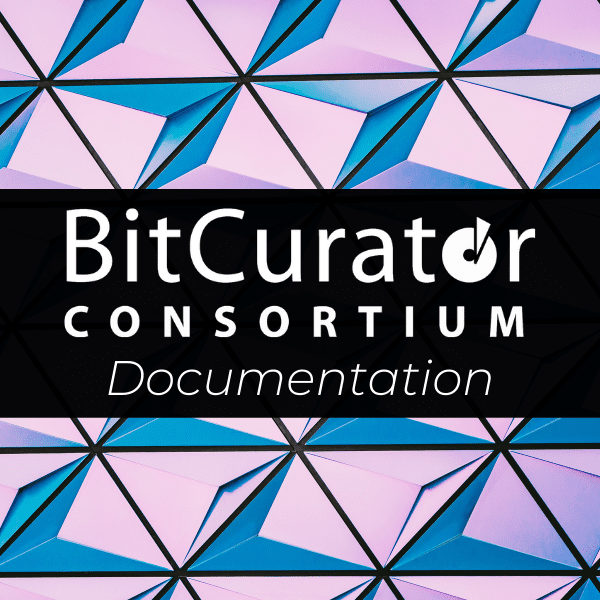BitCurator Support Q&A
Tammy Troup, David Cirella, Dianne Dietrich, Andy Foster, Sam Sfirri, Alison Rhonemus, Jess Whyte, and Kam Woods | Software Development Committee
The BitCurator community support model relies on:
- you, the community,
- the BitCurator Users Google Group for user support, and
- GitHub to track issues that require development
Where can I go for BitCurator support?
- The BitCurator Users Google Group.
- The BitCurator Environment Wiki, including the QuickStart Guide.
- Great Question! Events
- Monthly Community Calls
When writing to the BitCurator Users Group with a support question, it’s helpful to also provide your Ubuntu version and BitCurator version (this can be found by typing bitcurator version in your terminal). Software Development Committee (SDC) members will also monitor the group to surface common user issues and work with the Documentation & Training Committee to ensure that documentation exists for these.
Another avenue for support on the BitCurator environment is the Membership Committee’s annual “Great Question” event. It’s like the Google Group, but face to face in real time. The event happens twice a year, and you can review past recordings by searching “Great Question” at https://bitcuratorconsortium.org/.
If you are a BCC member, remember that you can request a topic or discussion for consideration at a monthly community call any time by contacting the community facilitator. This is another opportunity for discussing issues in real time with others.
Can I provide support?
Yes, please! We rely on our vibrant open-source community to provide support. Everyone in the community is welcome to monitor the Google Group, answer questions, and offer documentation suggestions.
How can I support development?
First, thank you! If you want to take a more active role in BC maintenance and development, you can:
- File an issue in GitHub. Issues help keep track of bugs or enhancements and are useful for development. For example, when an issue is mentioned in a pull request, the issue will be updated to indicate work is in progress. Issues also help volunteer contributors identify where they can help. Here is a guide on how to file issues in GitHub.
- The BitCurator GitHub organization currently includes two, active core repositories – bitcurator-salt and bitcurator-cli. If you’re unsure where to file your issue, it’s okay, issues can be moved retroactively to the appropriate repository.
- Contribute with a pull request. BitCurator repositories are maintained by volunteers in our community, like you. If you see an issue you think you can fix, you can do so and submit a pull request with your suggested code changes. If you’d prefer to check first if your fix will be welcome, you can comment on the issue or send a note to the mailing list at https://groups.google.com/d/forum/bitcurator-users.
What happened to the Jira instance and the issues there?
The BCC managed a members-only Jira Help Desk from 2015-2019 that has sunset. In 2022, the Software Development Committee worked through the remaining issues in the Jira queue together to identify issues that could be resolved through documentation (big thanks to the Documentation & Training Committee for taking these on!), ones that could be marked resolved, and those that could be transitioned to GitHub issues.
Having a lively and strong open source community is our greatest asset. All of us who contribute to development, documentation, education, or asking and answering questions are critical to BitCurator and its future. We welcome your contributions.
BitCurator Users Group BitCurator Wiki
Tammy Troup, David Cirella, Dianne Dietrich, Andy Foster, Sam Sfirri, Alison Rhonemus, Jess Whyte, and Kam Woods. (January 10, 2023). BitCurator Support Q&A. Software Development Committee.